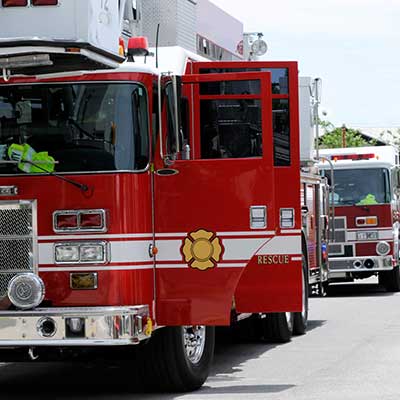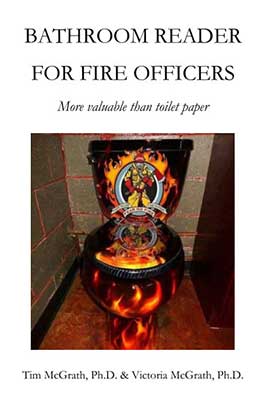We Need It Because ISO Says We Do
by Dr. Tim McGrath & Dr. Victoria McGrath

The Insurance Services Office, Inc. (ISO) has often been the foundation for justification of additional apparatus, equipment, and even personnel - and it has been very successful - until lately. Would anyone have the courage to actually question if ISO should be the standard for which all fire department requests are justified? It is sort of the equivalent of questioning Motherhood and Apple Pie, and then hoping to run for a political office. It just seems so wrong on so many fronts!
However, as we work with fire departments throughout this great Country of ours, I am finding an increasing number of City Administrators, Township Officials, Governing Councils, and even Fire Chiefs that are questioning if ISO should have such an influence on today's fire service. The problem is that for years there were no acceptable measuring tools for evaluating the efficiency of a fire department. Therefore, it is reasonable that an agency that would evaluate a fire department, in order to recommend an insurance rate based on the ability of that fire department to provide suppression services, was prudent - and it still sounds like a good argument.
One needs to begin to question ISO influence when one hears some of the agencies decisions. For example, what about a community that has an all career fire department with 12 fire/medics assigned between the three shifts with minimum staffing being three per shift. The department's previous ISO classification had been a Class 4 - based on these same staffing numbers. However, a recent ISO evaluation threatens to reclassify the City as a Class 10 because they don't meet the ISO 106B rule. Ok, we all can make strong arguments for four firefighters on an engine, but how many of us run three?
Conventional wisdom suggested we meet with ISO, in their Chicago regional office, and surely find a means by which the community could retain a classification below a Class 10. Remember Class 10 infers there is no fire protection at all. As the conversation ensued, and no compromise was to be achieved, we asked the question "if the community eliminated their career fire department and went to an all volunteer department, would they receive a classification below a Class 10". The answer was Yes! What is wrong with this picture? Eliminate career on-duty personnel and cover the community with an all volunteer department? Would this better serve the residents? How?
Or should we talk about the department that lost points because their annual pump testing records indicated that in one year (of three) they had exceed twelve months by less than 30 days. Or the new engine that was not given full credit because it did not have a documented history of pump testing. Or the community that protects over 200 square miles from one station and ISO gave the entire 200 square mile protection district a Class 4 rating.
Today, ISO still focuses solely on fire suppression. Those departments that provide emergency medical services (EMS) in addition to fire suppression are finding that EMS accounts for greater than 70% of all emergency responses. Should maybe we be using some other benchmark to measure adequacy of service? There are others resources to justify department needs.
Should fire departments that predominately perform EMS 70% or greater of their total activities, be designed on an EMS model rather than the traditional fire model? Wow! Now we have crossed the line. The point is simple, City and Township Administrators are not buying the old "golden rule" of - if we don't do it ISO will increase everyone's insurance rates so high they won't be able to live in our community. Progressive Fire Chiefs must begin using additional criteria to justify their needs.
Do not misunderstand, ISO has value. Their purpose is to help insurance companies establish insurance rates. Obviously, the ability of the fire department should be a factor in that process. However, ISO should not be the sole benchmark for evaluation of the performance of a fire department. ISO definitely should not be the major argument for justification of your budget. Components contained in the accreditation process can be helpful. This does not necessarily mean seeking accreditation, but using their measuring criteria to assess your department. Better yet, determine your governing officials' expectation of your department - beyond staying within the budget. Move beyond the ISO argument as your trump card, most governing individuals and groups who control the dollars have.





